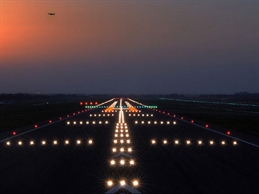
The airport authorities of Amsterdam and Delhi have joined forces to develop airfreight traffic between them and establish the route as the prime conduit for flows between India and Europe. To that end, they have signed a memorandum of understanding to collaborate and promote cargo business between them. Its scope includes business promotion, knowledge sharing, training and regulatory agency cooperation as well as performance benchmarking and product development.
The Indian airport is looking to one of Europe’s premier air cargo gateways, with a history of proactive cargo development activities, to raise its own game.
“We have created world class infrastructure at Delhi and are at the right moment to partner with Amsterdam Airport Schiphol to bring our product onto a par with global standards,” declared Prabhakara Rao, CEO of Delhi International Airport, Ltd, which owns the Indian airport.
“With the expertise of Amsterdam Airport Schiphol, our products and strategy will only improve and enable customers to enjoy greater efficiencies in airfreight and across the supply chain,” echoed Sanjiv Edward, Delhi’s head of cargo.
For Amsterdam the partnership is meant to boost its role as a conduit for Indian products to Europe and beyond. “Amsterdam can be a global gateway for Indian goods destined for mainland Europe, as well as other markets, including the USA, Africa and Latin America,” said Enno Osinga, senior vice president, cargo at Amsterdam Schiphol Airport.
“We will build a trade lane between Amsterdam and Delhi, making Delhi a hub and a global gateway. We will work with our friends in Delhi to take air cargo business on this lane to the next levels of business efficiency and operational excellence,” he continued.
Osinga has always stressed the importance of attracting shippers and meeting their needs to develop cargo business rather than courting cargo airlines. Most airport authorities are removed from the cargo activities on their premises, so working with them seems even less productive than chasing carriers, but there are clear benefits with Delhi, he argued.
“It is not about going after an airport but about finding partners who can both learn from each other and use each other’s expertise to become more successful. For example, given the importance of the pharma market, and the major manufacturing taking place in India including in the catchment area around Delhi, there is value for Schiphol in working together to understand the needs of that market and then provide services that meet those needs,” he said, adding that Amsterdam’s experience in hosting a highly-developed community and providing a single window to the market-facilitating logistics flows through effective public-private partnership are of value to the Indian airport.
He called Delhi “one of the few airports which, like Schiphol, has a dedicated cargo team with a clear vision and commitment to develop cargo traffic, backed by a supportive government. Most airports regard cargo as a by-product of passenger business, that generates no revenue and gets in the way of more lucrative activity.”
Moreover, Delhi is strategically-located close to pharma manufacturing activity centres – one of Schiphol’s key targets for business development, he added.
This is one area where the pair are looking to jointly develop products, something that is normally done only by airlines or forwarders.
“We have a number of possibilities in mind, subject to further discussion. One is establishing GDP certification (the European Good Distribution Practice standard for handling pharmaceuticals) by sufficient parties at both ends to create a GDP trade lane. Another potential area is the wider subject of active and passive cool chain solutions, which will involve equipment providers, carriers, handlers and logistic service providers. We can also look at trade lane validation by government and inspection authorities, in order to establish faster and more efficient transits and reduce the incidence of unpredicted hold-ups. The resulting enhanced services could be packaged as premium service options specific to particular commodities and markets,” Osinga explained.
Brussels airport in neighbouring Belgium has also taken steps to establish itself as a gateway for pharmaceuticals. To this end, the airport company marshalled logistics operators at Brussels to join forces to develop best practices standards, which led to range of standards for all aspects of pharma traffic – from warehousing and ramp handling to trucking – which was adopted by IATA as the foundation of its Center of Excellence for Independent Validators (CEIV) certification programme.
By Ian Putzger
Air Freight Correspondent | Toronto



